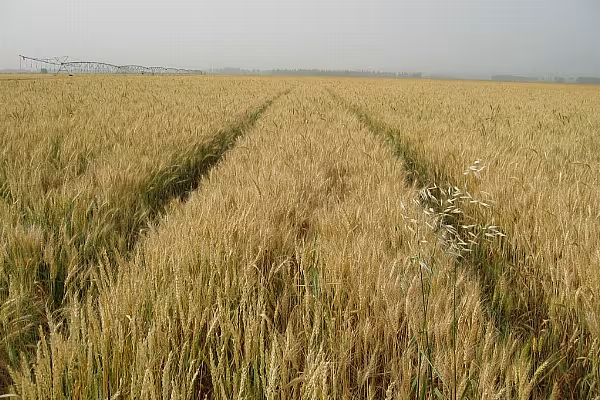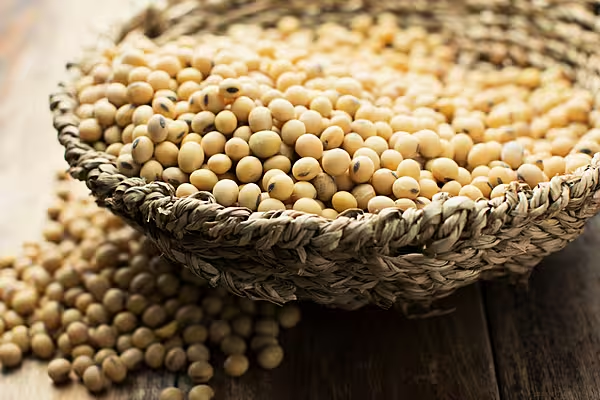Grain farmers in western Europe are taking advantage of a warm, dry spell to make headway in harvesting, but the clear skies may have come too late to prevent some rain damage to crop quality, especially in wheat, analysts and traders said.
Torrential rain, which caused deadly floods last week in Germany and Belgium, is not expected to have cut yields significantly and European crops remain in better shape than drought-ravaged North American spring wheat and canola.
However, the drenched conditions have raised fears of deteriorating grain quality, fuelled by reports of sprouting grains and disease-darkened crops in some areas. Renewed rain forecast from the end of the week is also making the market cautious.
'A Great Harvest'
"We were confident about having a great harvest and the rains have dampened the spirits a little," Jean-Baptiste Vervy, a crop farmer 100 km (60 miles) east of Paris and head of recruitment start-up Wizifarm, said during barley harvesting.
"In wheat I think the volume is going to be there but the question mark is whether there'll be quality too."
Traders said the wet start to summer coupled with good yields may dilute protein content in soft wheat while also potentially affecting test weights and Hagberg numbers.
Such criteria determine whether wheat is accepted for flour milling or livestock feed.
Durum wheat, used in pasta, may also have suffered quality deterioration, French traders said.
At the end of June, the European Commission trimmed its forecast of usable production of common wheat in European Union's 27 member countries in 2021/22 to 125.8 million tonnes from 126.2 million estimated last month.
For winter barley, harvesting of which may be almost completed in this week's hot spell, reports so far suggested good yields and reasonable quality except for some weakness in test weights.
Rapeseed could be a positive surprise in the French harvest after the oilseed endured drought, insect attacks and spring frosts.
"Rapeseed is showing its capacity to compensate," Afsaneh Lellahi of oilseed crop institute Terres Inovia said. "Yields so far are pretty good."
Flood In Germany
In Germany, the flood disaster in the west was only expected to trim slightly national production, with quality becoming a greater concern.
Estimates of wheat crop losses from last week’s storms ranged between 150,000 to 200,000 tonnes against the 2021 wheat harvest estimated at 22.8 million-23 million tonnes.
“A major issue now is wheat quality, which may have suffered from the rain, but we do not have enough information to make a serious judgment on this yet," a German grains analyst said.
German farmers are expected to make swift progress in barley harvesting this week before turning to rapeseed and then wheat cuttings, the analyst said, adding barley crop quality appeared lower than last year without being a serious issue.
Polish Harvests
In Poland, the harvest is also advancing in drier weather, with last week's rain less disruptive than in other countries, said Wojtek Sabaranski of analysts Sparks Polska.
Barley harvesting is underway in south and central Poland, he said, adding winter rapeseed harvesting was in the early stages in the southwest and wheat harvesting just starting in isolated areas.
News by Reuters, edited by ESM. For more Supply Chain news, click here. Click subscribe to sign up to ESM: European Supermarket Magazine.














